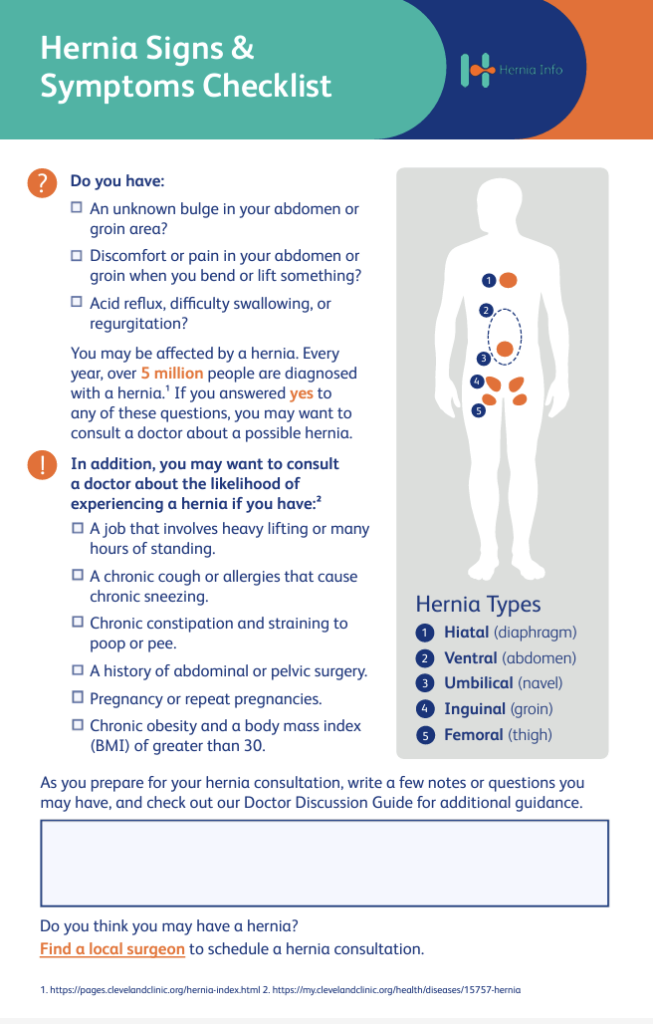Do you suffer from a hernia?
We’re here to help provide you with information for your hernia journey. Let's get started.


Do you think you may have a hernia?
You’re not alone; hernias are very common. Over five million people get diagnosed with a hernia every year.1 Learn more about what a hernia is, diagnosing a hernia, and the next steps to treating your hernia.
See signs and symptoms
Common hernia symptoms
Hernias are a common medical condition that occur when an internal organ or tissue pushes through a weak spot in the surrounding muscle or connective tissue.2 Most hernias are caused by a combination of pressure and an opening or weakness of muscle or connective tissue. While muscle weakness may be present at birth, an increase in abdominal pressure or certain risk factors may make you more prone to developing hernias later in life.3 They are most noticeable when coughing, lifting, or rising from a sitting to a standing position and typically do not cause a sharp pain.
Do you have:
- An unknown bulge in your abdomen or groin area?
- Discomfort or pain in your abdomen or groin, or at an incision site, when you bend or lift something?
- Acid reflux, heartburn, difficulty swallowing, or regurgitation?
- A general sense of weakness?
- A feeling of being full?
If you answered yes to any of these questions, you may want to consult a physician about a possible hernia.
What type of hernia do you have?References
- Hernia Surgical Mesh Implants. U.S Food and Drug Administration. February 4, 2018. https://www.fda.gov/medical-devices/implants-and-prosthetics/hernia-surgical-mesh-implants
- https://www.fda.gov/medical-devices/implants-and-prosthetics/hernia-surgical-mesh-implants
- https://www.healthline.com/health/hernia#causes